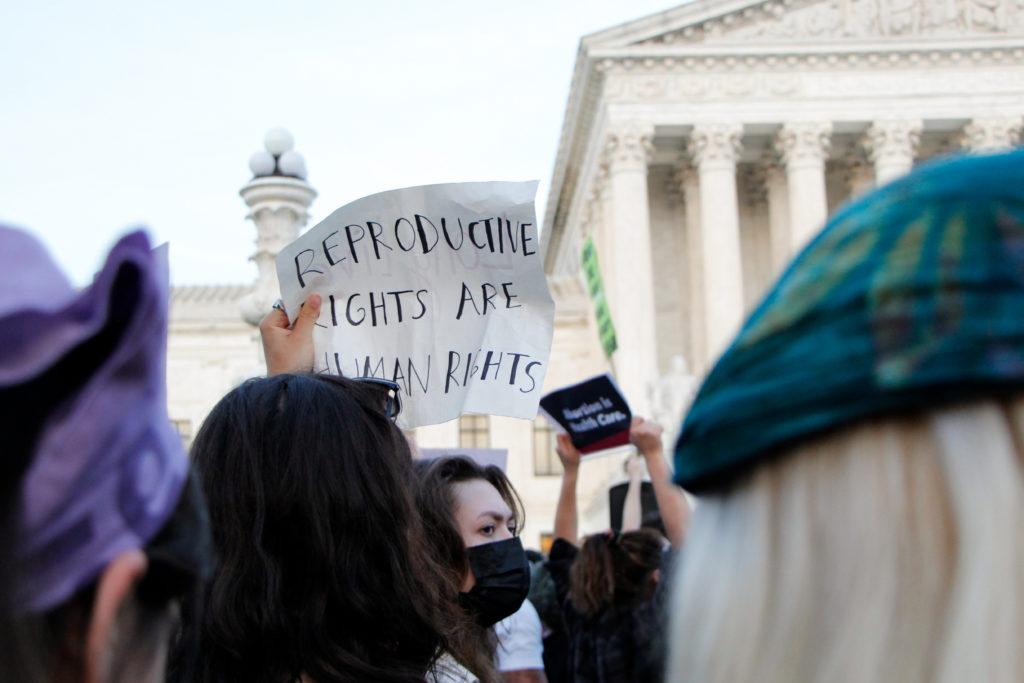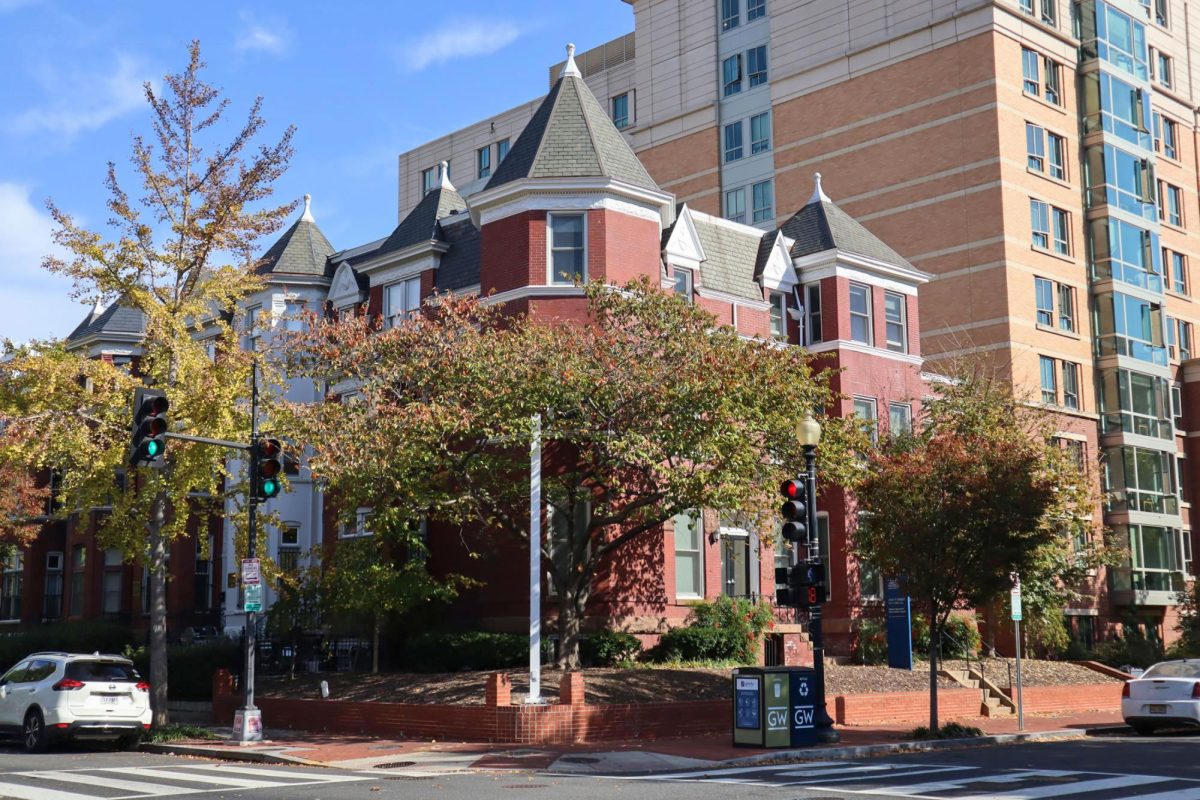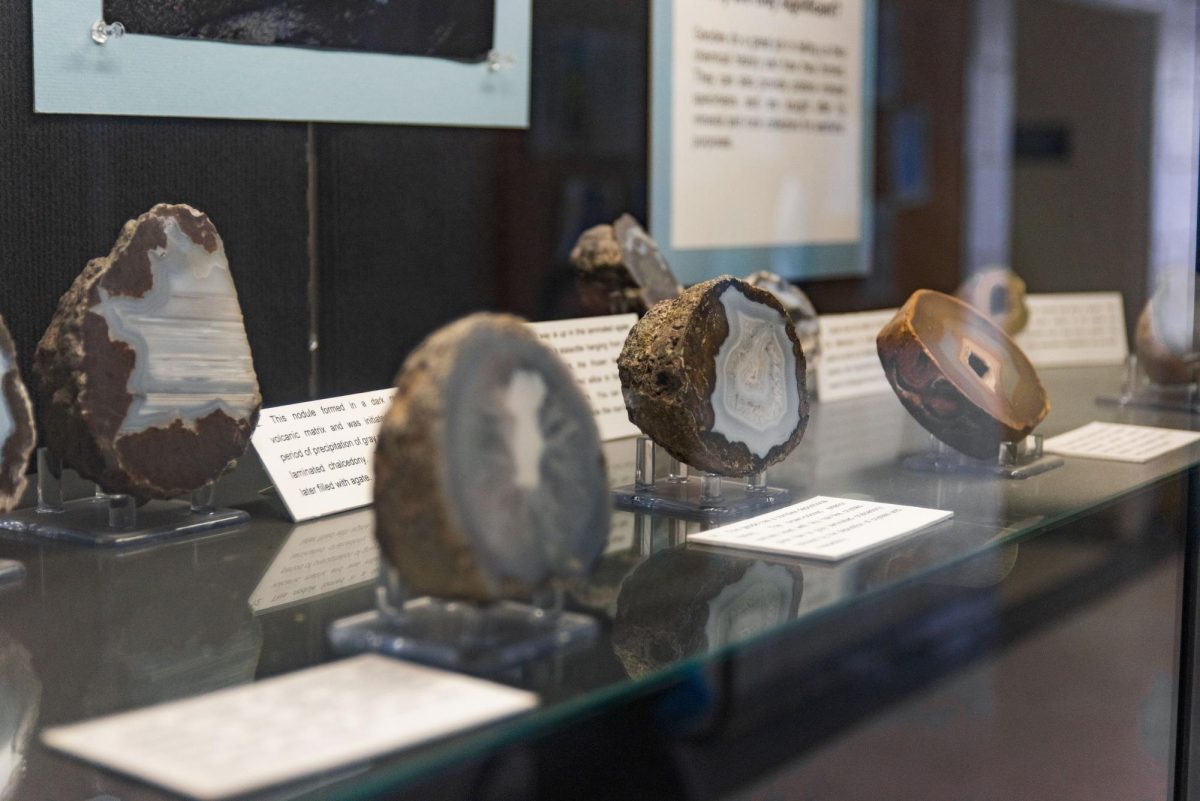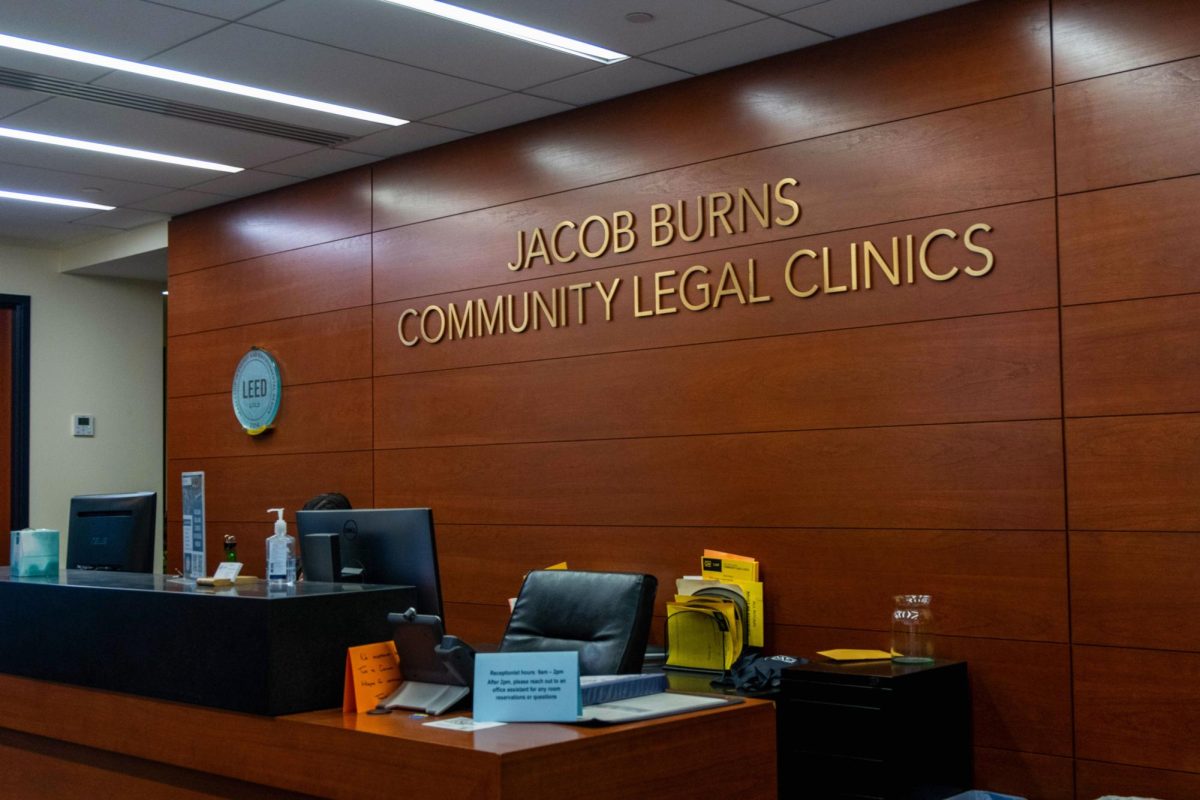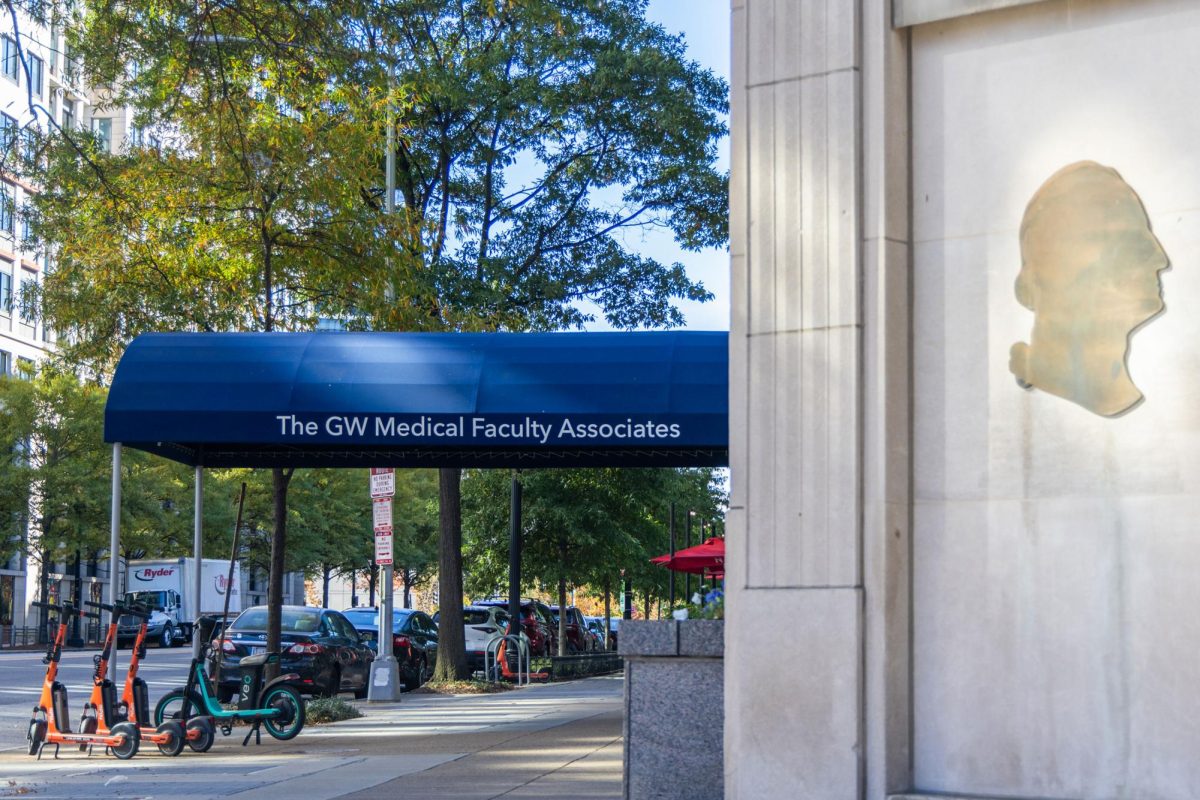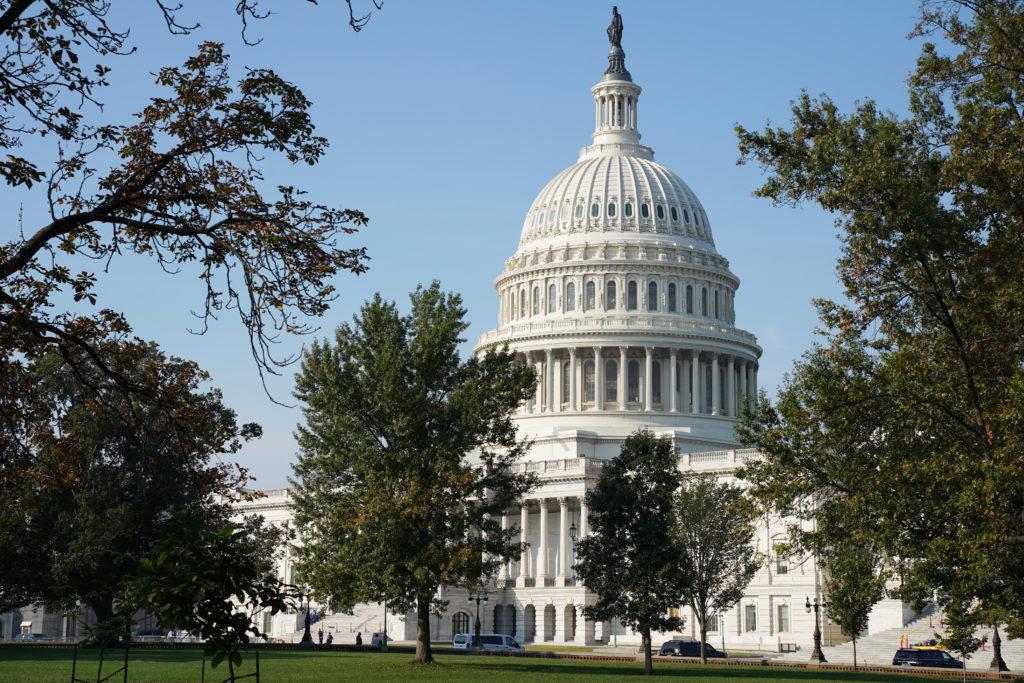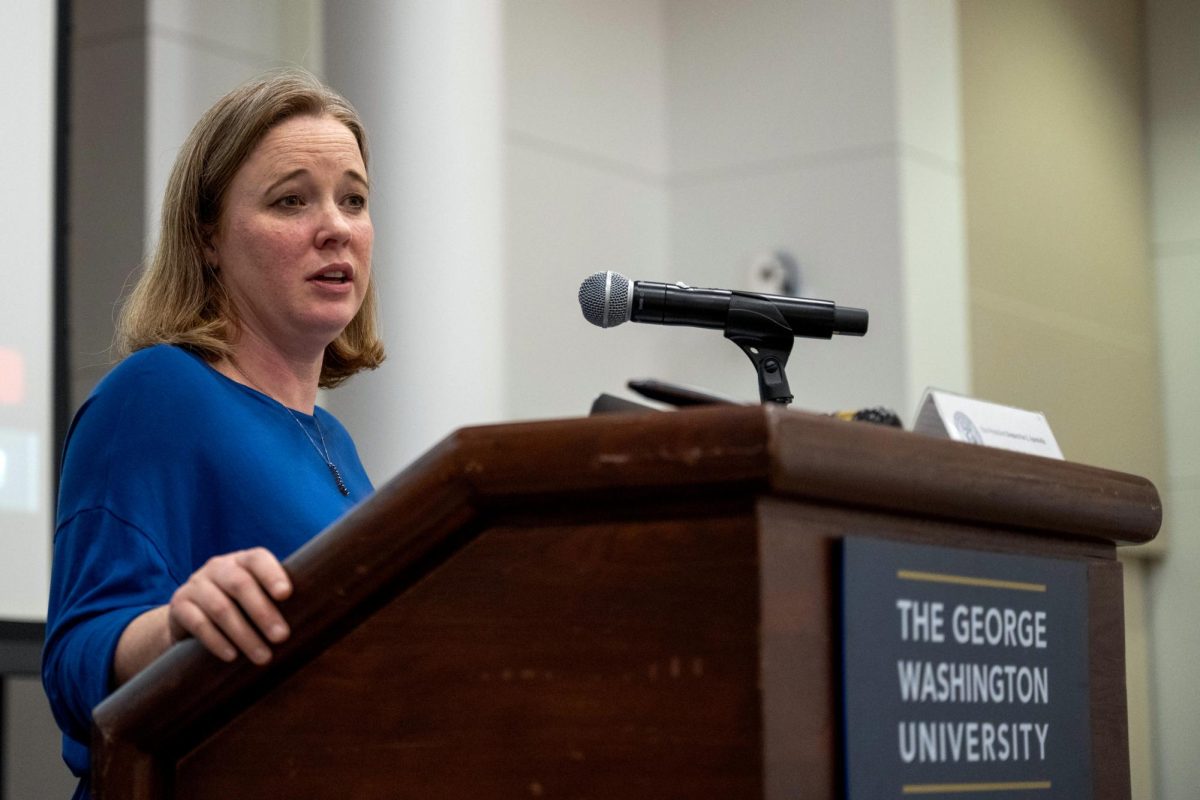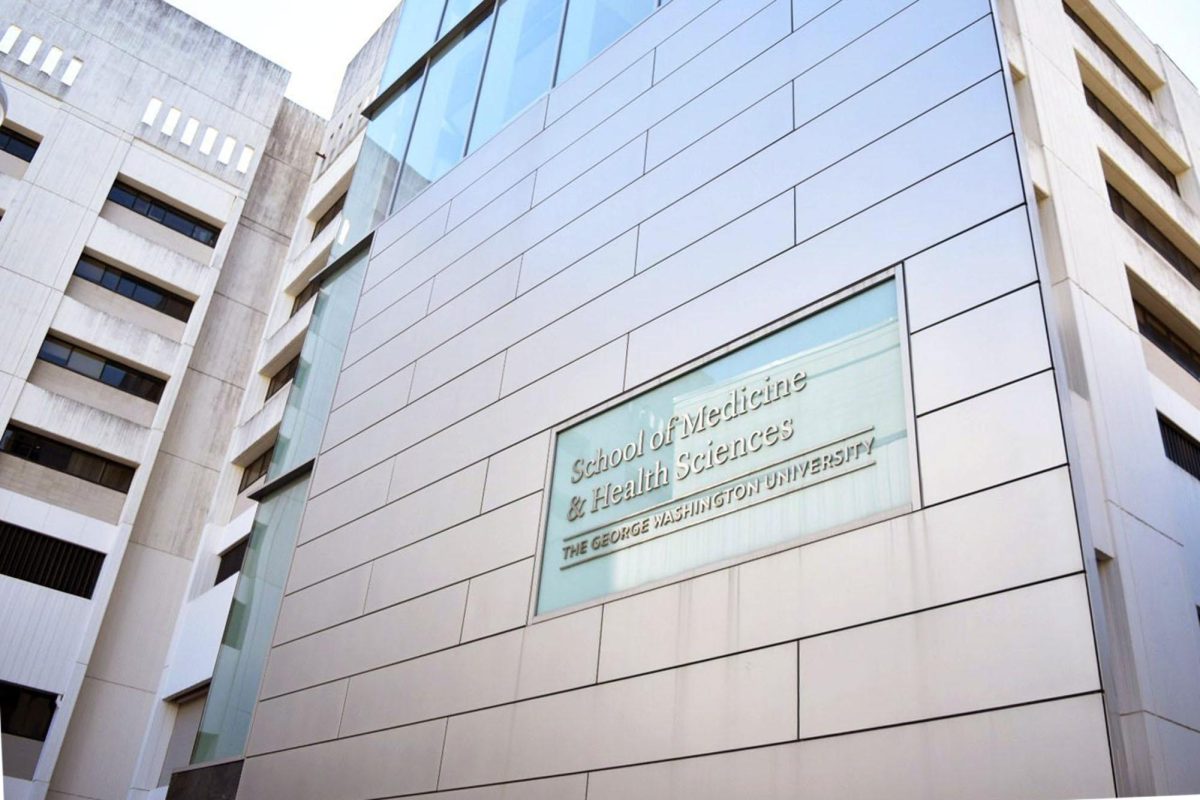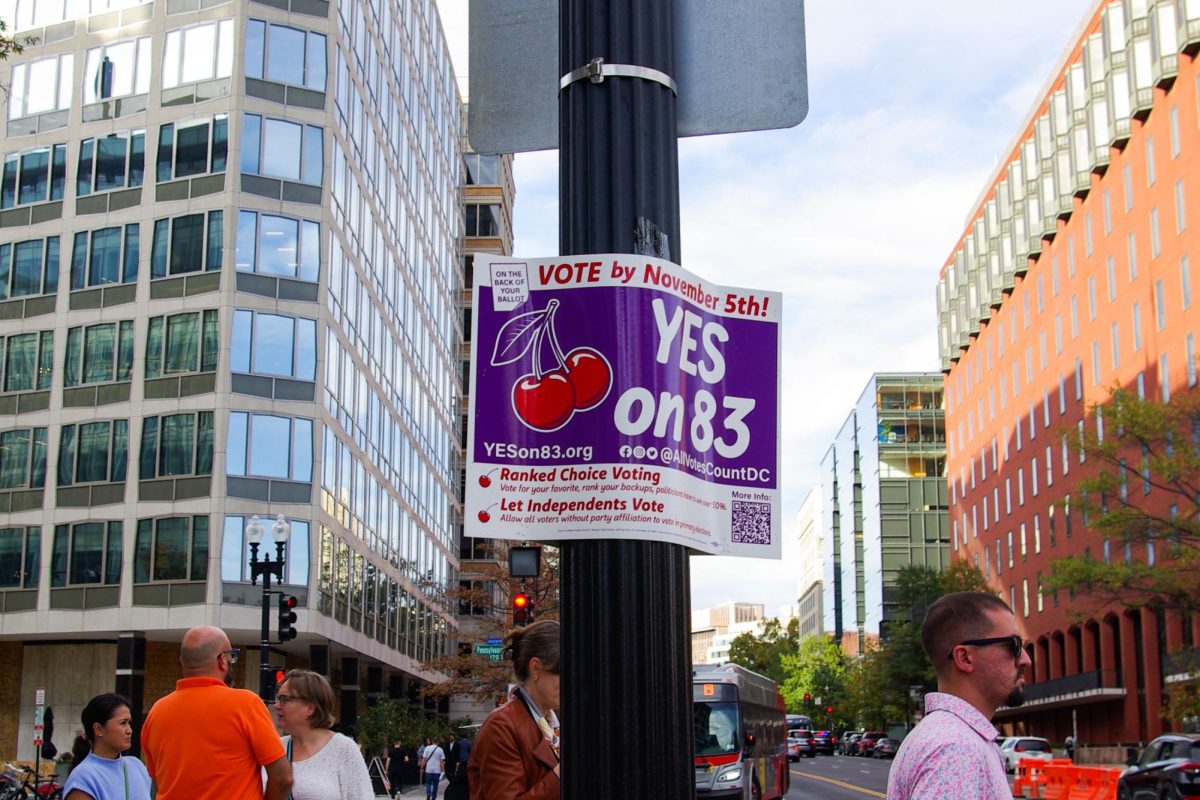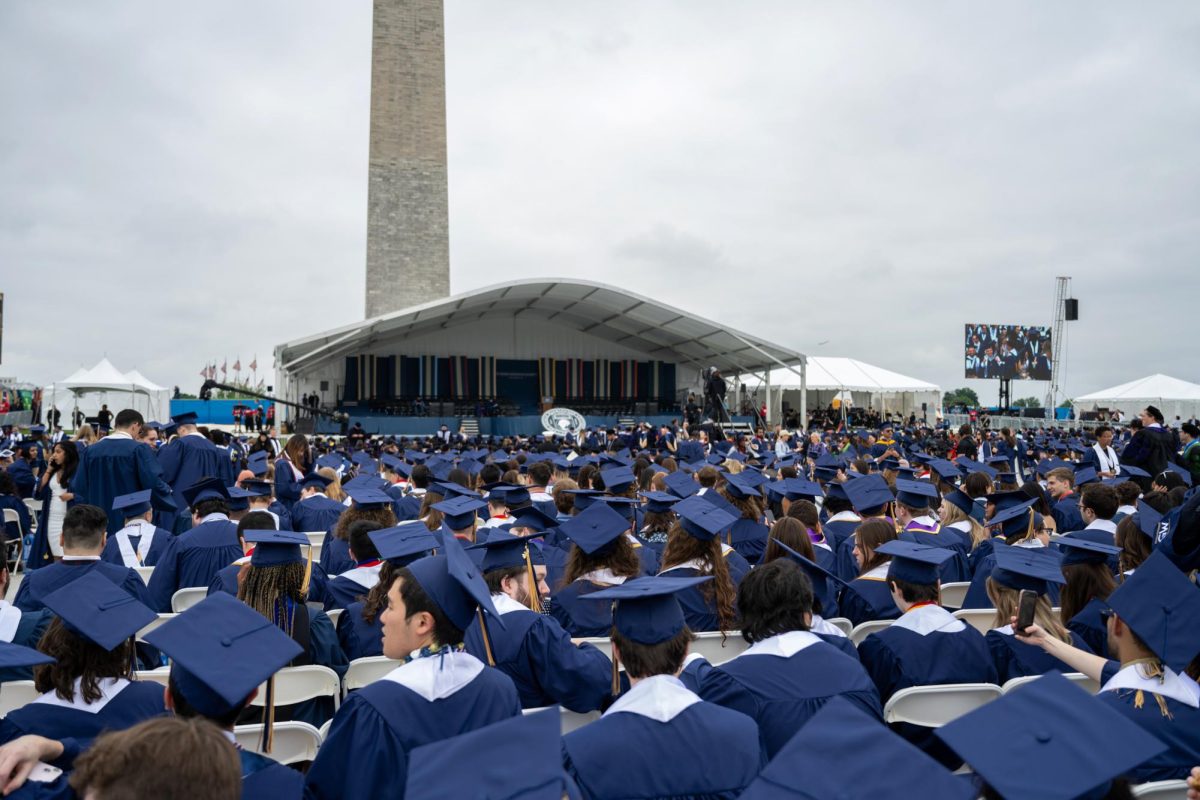Summer 2022 became the center of historic transformation at GW, from the announcement to remove the Colonials moniker to the campus upheaval surrounding the overturn of Roe v. Wade.
In June, the University ditched its nearly 100-year-old Colonials moniker after years of student activism and protest, leaving students questioning its replacement for the upcoming century. One week later, the Supreme Court struck down Roe v. Wade, triggering massive protests that took on new life when students demanded that GW fire Justice Clarence Thomas leading up to his decision to step back from the seminar he co-lectured for GW Law in July.
Among other major headlines, officials grappled with the first case of monkeypox on campus and welcomed new faces to the administration following the departures of University leaders like Mark Diaz and Cissy Petty.
Here’s a roundup of the last few months to help you catch up on a jam-packed summer:
Removal of the Colonials moniker
In June, Board of Trustees Chair Grace Speights announced the University would abandon its nearly century-old Colonials name by the 2023-24 academic year, but officials have yet to announce a decision on the replacement. Efforts to ditch the moniker gained momentum in 2018 after students launched a petition to change the name over concerns that the symbol serves as a reminder of the harmful effects of international colonialism.
The moniker had lost its presence on campus, with student leaders renaming GW’s fan section from the Colonial Army to George’s Army in August 2019, and the Colonial Central became the Student Services Hub around the same time.
“The Board recognizes the significance of changing the University’s moniker, and we made this decision only after a thoughtful and deliberate process that followed the renaming framework and special committee recommendation that considered the varying perspectives of our students, faculty, staff, alumni and athletics community,” Speights said in a release in June.
Fallout of Roe v. Wade
In a 6-3 vote, the Supreme Court struck down federal abortion protections in the landmark Dobbs v. Jackson Women’s Health Organization case ruling in late June. Thousands gathered outside the Supreme Court building to protest the decision.
More than 11,000 people condemned Justice Clarence Thomas for the decision and called on officials to remove him from the University’s faculty. Thomas, who wrote the concurring opinion which questioned past cases guaranteeing same-sex marriage and contraceptive rights, has taught a Constitutional Law seminar at GW Law for the last 10 years.
Despite the pressure, officials refuted calls to fire Thomas, saying the move would violate academic freedom.
“Because debate is an essential part of our University’s academic and educational mission to train future leaders who are prepared to address the world’s most urgent problems, the University will neither terminate Justice Thomas’ employment nor cancel his class,” Provost Christopher Bracey and GW Law Dean Dayna Bowen Matthew said in an email to GW community members.
But in late July, Professor Gregory Maggs – who co-taught the seminar – said Thomas would be “unavailable” to teach the course this fall, and Thomas no longer appeared on GW Law’s course listing.
More than 50 student leaders – notably excluding Student Association President Christian Zidouemba – penned a letter calling for Thomas’ removal, but controversy arose when Zidouemba initially refused to allow some SA members from signing the letter with their SA titles. The dispute culminated in a unanimous closed-door vote by members of Zidouemba’s executive cabinet to remove him from his position after they said he was unfit to lead the SA.
But Zidouemba was able to retain power after two executive leaders withdrew their votes of no confidence while others resigned from their positions.
Infectious disease on campus
In late June, officials dropped the University’s asymptomatic COVID-19 testing requirement but opted to continue to mandate face coverings in public, indoor settings for community members.
GW also amended its COVID policies to require students who have contracted coronavirus to isolate in place for a minimum of five days, leaving students who test positive for the disease possibly in the same quarters as their COVID-negative roommates. Before the change, if on-campus students tested positive for COVID they would move to housing designated for isolation in other residence halls or nearby hotels.
The University also treated its first case of monkeypox – a viral infection that causes lesions on the patient’s skin – in late June and later identified a “handful” of monkeypox cases within the community throughout the summer.
Administration shakeup
GW waved goodbye to now-former Chief Financial Officer and Executive Vice President Mark Diaz and Dean of Students Cissy Petty this summer, while adding four new administrators in early July and welcoming five academic leaders to new positions in late June.
Bruno Fernandes, GW’s former treasurer and vice president of finance, became the University’s CFO, leaving Diaz’s executive vice president duties to former University of Vermont administrator Sharon Reich Paulsen. She also took GW’s first chief administration officer job, a new position that aims to “oversee the leadership of administrative functions.”
Officials hired Ellen Moran to serve as the vice president of communications and marketing and gave Sabrina Minor, the former interim vice president for human resource management and development and chief people officer, a permanent role.
The provost’s office also hired five new academic administrators, appointing Geneva Henry as the dean of libraries and academic innovation and vice provost for libraries and information technology and bumping up Emily Hammond to be vice provost for faculty affairs. Officials promoted Colette Coleman to serve as vice provost for student affairs and dean of students to replace Petty, who retired after four years in the role.
Officials announced Suresh Subramaniam would take over as vice provost for graduate and postdoctoral affairs and Jeffrey Brand would become the associate provost for undergraduate affairs and special programs.
Liesl Riddle also became the new dean of the College of Professional Studies in late July, replacing the school’s interim dean Melissa Feuer after nearly two years without a permanent leader.
Daniel Patrick Galgano contributed reporting.


